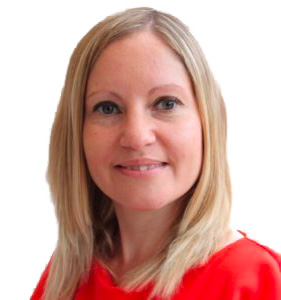Media careers are ‘squiggly’. We need more cross-functional skills

Opinion: Career Leaders
Cross-functional skills are not only important for employees’ ‘squiggly careers’ but for companies to retain diverse talent.
With media agencies increasingly relying on acquisition strategies to secure growth, cross-functional skills are set to rise up the agenda.
Analysis by The Media Leader recently highlighted the plethora of digital and data acquisitions across the main media holding companies.
The need to unify a diverse set of businesses means that multi-disciplined talent will be in demand — as the essential glue to stitch together these different skill sets.
I’ve certainly noticed huge amounts of title and role diversification when conducting research work across the sector.
Media agency careers are no longer defined in a straightforward way with teams of planners and buyers.
Now there are data and engineering departments, privacy and sustainability specialists, and commercial success teams.
The ability to move easily between disciplines, industries and roles is a brilliant way to future proof your career — it’s a mindset that is advocated in the book Squiggly Careers, first published in 2020.
This relatively new phenomena is a really interesting area to explore — whether you are thinking about your own career or the types of talent you want to recruit into your business.
A cross-functional candidate can have a knock-on effect on innovation, creativity and idea generation, because of their ability to connect the dots and navigate opposing perspectives.
This is particularly key in media, where the battleground between legacy and digital channels can sometimes be an unnecessary obstacle.
Binary debates in our industry are common and incredibly unhelpful — they “lead to both sides digging trenches and neither finding a way forward.”
Targeting cross-functional skill sets also makes sense from an equity point of view — where there is still much room for improvement, according to the latest All In Census results.
It will improve your chances of tapping into a diversity of talent if you are less reliant on candidates who have taken the same well-trodden career path as your existing talent.
If you are in any way concerned about AI taking over your job, then securing a squiggly career is certainly one way to safeguard your future.
So what are the key skills you need to cultivate or seek out to benefit from cross-functional working?
Stakeholder management
This isn’t a new skill but one that is regaining relevance. It’s something I remember learning about, when I studied for my Diploma in Marketing back in the early 2000s.
It’s the ability to communicate skilfully to a diverse range of people, as well as bring them together in meaningful ways, with a shared goal.
Getting people on board with a mission that isn’t central to their day to day role is challenging.
However, the value comes from creating something that adds up to more than the sum of the parts.
Someone who is skilled at stakeholder management, will be able to articulate a goal in a diverse set of ways, achieving ‘buy in’ on multiple levels.
The right combination of listening and visioning
Individuals with cross-functional skills tend to be collaborative — having traversed a number of disciplines they won’t hold a static mindset.
They will be accomplished listeners — learning from others is often how they have so quickly acquired a diversity of skills.
However, when it comes to bringing people together with shared goals they will also understand that there is a balance to be achieved between listening and visioning.
In a cross-functional working group everyone needs to be heard, but if this remains the only focus, it’s hard to move from conversation to action.
Multi-disciplined teams are going to have different perspectives on what is important. For example, in the world of media research a digital specialist will prioritise data scale, recency and speed of processing above other considerations.
More traditional practitioners will point towards the importance of quality standards, such as accuracy, stability and the need to reduce bias.
Both sides of this debate hold valid perspectives, a skilful mediator will find a commercially valuable playground that works to capitalise on the strengths of each discipline.
Thoughtful processes
Bringing together a team of cross-functional experts usually means you are working without a process.
This is a group of people who have never worked together before, there are no templates or systems to work with.
The benefit is that you are free to invent one, and this can create efficiencies and novel solutions.
However, this diverse set of people will be very used to different working practices. They will also be time-pressured.
It might be that you are asking them to collaborate on something on top of doing their day job. This means you need to foster participatory decision-making, and clear and efficient frameworks, which have an obvious connection back to the end goal.
Drop the jargon
If you have worked across a range of industries and roles you will have been exposed to multiple languages.
Business is full of jargon which can often feel like a foreign language. In many instances it is used protectively to assert something as incontrovertible.
Cross-disciplined practitioners, who have moved around a lot, will be much more comfortable with asking the question “what do you mean by that?”, and we all need to ask this more often.
Cutting through the jargon to get to a clear and neutral way of articulating a problem, is crucial if you want to deliver cross-functional solutions.
***
Recruiting talent with diverse skill sets offers massive value to organisations.
There are obvious efficiencies — resourcing talent that can flit between departments makes your business flexible to new opportunities.
Whilst individuals who can bring together people with different skill sets facilitate the delivery of more integrated solutions.
 Anna Sampson is the founder of Anna Sampson Consulting and was previously insight and strategy director at magazine marketing body Magnetic.
Anna Sampson is the founder of Anna Sampson Consulting and was previously insight and strategy director at magazine marketing body Magnetic.
Career Leaders: The Media Leader‘s weekly bulletin with thought leadership, news and analysis dedicated about media careers, training, development and wellbeing.
Sign up for free to ensure you stay up to date every Tuesday.



